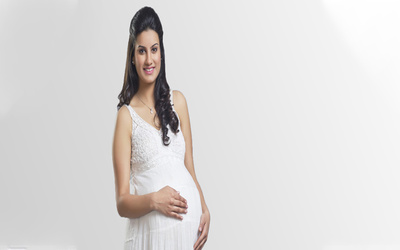It is widely known that pregnancies of women at 35 years or above are considered to be at a higher risk of being affected with Down Syndrome. Most clinicians specify this to the pregnant couple and closely monitor the pregnancy.
[the_ad id=”13701″]
Ultrasonographic examinations are only 60- 80% accurate and hence, there are possibilities of dysmorphisms being missed out. The traditional practice has been, to advise the patients to take on maternal serum screening tests and subsequently invasive diagnostic tests to rule out the probability of the pregnancy being affected with Down Syndrome.
However, the advent of Non-Invasive Prenatal Screening for specific chromosomal abnormalities has brought in a new dimension to prenatal testing. NIPT is relatively new in the market. While it is only a screening test, it is proven to be an attractive option for all pregnant couples due to its many benefits including safety and accuracy. Moreover, the pregnancy can be screened early on, allowing couples ample time to make an informed decision.
Following this tradition, what most of us fail to consider is the possibility of any pregnancy being affected with Down Syndrome. It is essential for any aspiring mother to be aware that, every pregnancy has a certain risk of being affected with a chromosomal abnormality like Down Syndrome. Hence, it is of utmost necessity that every pregnant woman be offered prenatal genetic screening/ diagnostic tests for common chromosomal abnormalities. An example below highlights the need for prenatal genetic screening, during pregnancy at any age.
26-year-old Mariam (name changed) is married non-consanguineously (consanguineous- matrimony between two closely related individuals). She was pregnant for the third time. Her first child was diagnosed with Down Syndrome post-delivery. Due to severe cardiac abnormalities, the child did not survive beyond the first year.
Within a year, she conceived again. Considering her previous pregnancy, the prenatal care providers suggested she undergo NIPT, to rule out the possibility of the baby being affected with Down Syndrome. A low-risk result was obtained for Down Syndrome on NIPT. She was advised to continue with her pregnancy by her gynecologist as all other tests were normal too. The child is now healthy and hearty. This convinced her of the importance of prenatal genetic screening
Mariam got pregnant for a third time recently and was advised to undergo NIPT for the latest pregnancy. To her delight, a low-risk result was obtained for Down Syndrome. She was advised to continue with the pregnancy, at the end of which she gave birth to a beautiful baby boy.
Mariam was not advised of any Prenatal Genetic Screening during her first pregnancy. She was 22 years without any family history or previously affected pregnancy. Hence, conventionally, her pregnancy was not considered to be at a higher risk for a chromosomal abnormality. Had she undergone NIPT during the first pregnancy, the clinicians and the couple would have been in a better position to make an informed decision regarding the pregnancy.
It is always better to provide information and access to prenatal genetic screening and/or diagnostic tests to all pregnant women regardless of age. Along with Down Syndrome, prenatal genetic tests also screen/ diagnose other chromosomal abnormalities. This and other vital information must be provided by the prenatal care providers during pre-test counseling. Every pregnancy is precious and must be given the due attention and care it needs.

